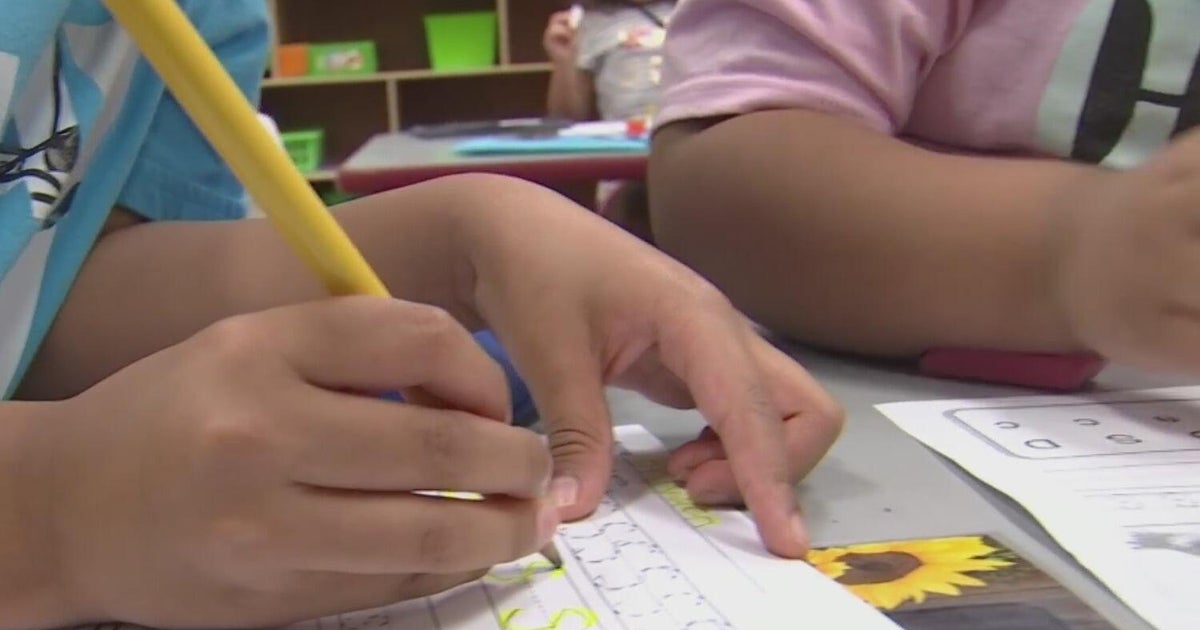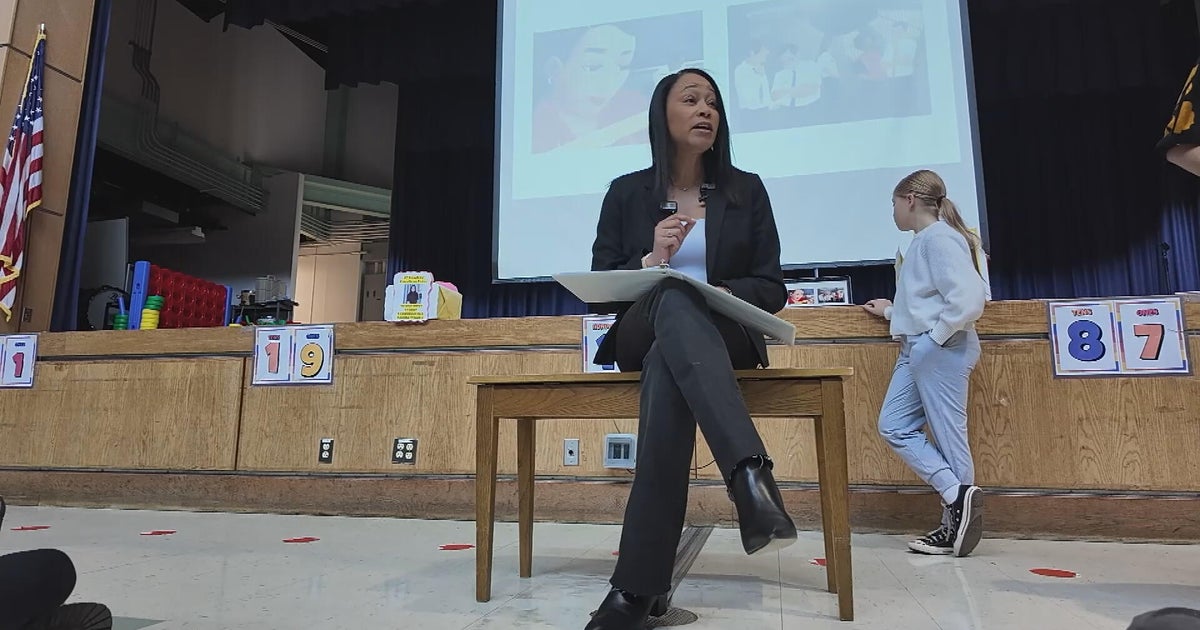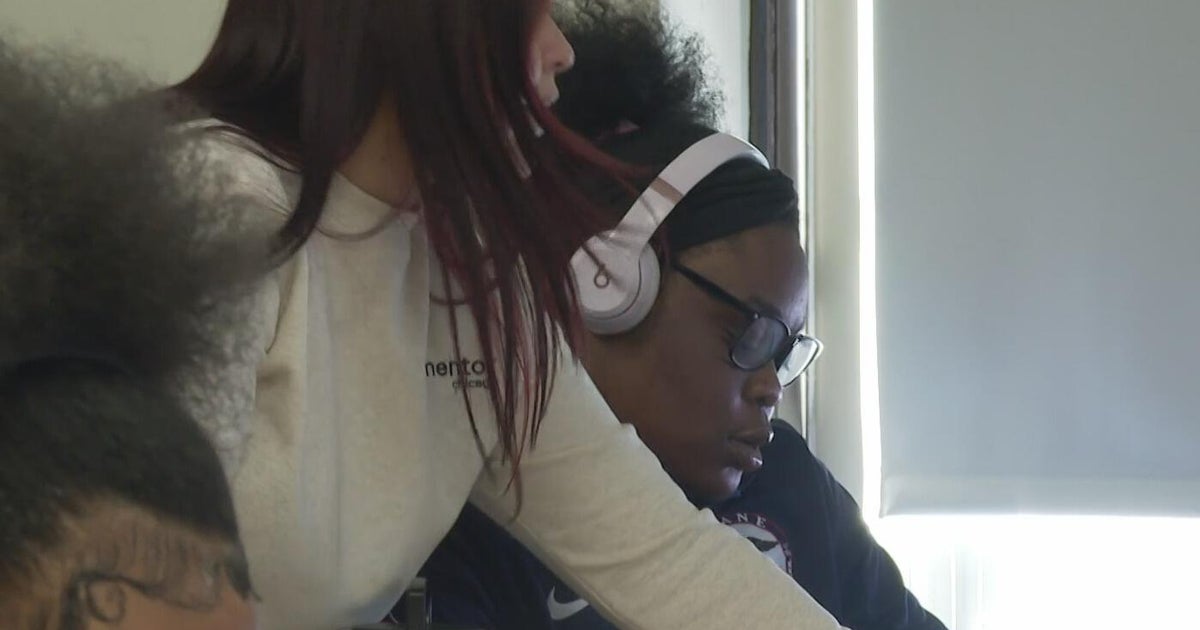Chancellor Walcott Defends Harder State Standardized Tests
NEW YORK (CBSNewYork) - Lately there has been an uproar among parents in New York who are upset with state standardized tests they say are too hard for their children.
But on Monday, New York City Schools Chancellor Dennis Walcott defended the new tests.
"It's going to be tough. It's going to be challenging," he said.
Walcott said he understands the new Common Core testing is harder than past exams, but he said it will help better prepare students for their future.
Chancellor Walcott Defends Harder State Standardized Tests
"Our children need to be challenged and they need to be challenged with material that is college and career-oriented," he told reporters. "A high school diploma is no longer enough."
The new testing is based on state standards, but parent Cynthia Copeland is saying thanks, but no thanks. She's refusing to have her fourth grader take the exam.
"We have no empirical evidence as to whether or not these Common Core standards are actually going to benefit our children's learning," she told Haskell, adding that the stress on students is unnecessary. "The children are becoming sick. They're becoming anxious."
Walcott said he understands preparing for the tests is stressful. So, some schools are also teaching stress relief.
"To make sure they relax and focus," he said.
For more on the tests, WCBS 880's Steve Scott spoke with Dr. Steve Kussin, who does the CBS on Education series for the station.
Dr. Steve Kussin On Standardized Tests
What is the Common Core?
"The Common Core curriculum is a national initiative to raise standards and make the tests more rigorous," Kussin told Scott. "And some people are saying too much too soon."
What about the parents who don't like the tests for a variety of reasons.
"I've heard them all. I call it the bagel store and bus stop research," he said. "They're confusing. They're too long. Some of the questions don't make sense. Some of the content hasn't been covered. And, above all, they're creating tremendous anxiety in these students grades three through eight."
Is it true that some students will be tested on things they haven't even been taught in the classroom?
"That will vary from school system to school system," Kussin said. "One of the objections is that while these standards may be great, the new curriculum may be great, lessons, books, materials aren't ready yet to go and students haven't been able to prepare for them. So maybe down the road, these tests will be good. But again, too much too soon. Now is not the time to give them."
Then there is "teaching to the test," where students are taught how to pass a test rather than given a broader education. Is too much time spent teaching to the test?
"Steve, this is an age-old question. It goes back to preparing students for Regents and final exams," Kussin said. "Obviously some test preparation is needed. How much is too much remains a question. But so much is riding on these exams, and I'm hearing this from parents and from the educators that more than the usual amount of time is going into preparing the kids for them particularly because these are new exams."
"Now the law allows parents to actually hold their kids out of these tests. Would you recommend that?" asked Scott.
"Steve, I would not, for a number of reasons," Kussin. "I sympathize with the parents and I've heard all the objections. Again, bus stops and bagel stores. But the tests serve some purposes. I'm for testing, but I'm for good testing, and if we can get these tests online and make them good, they give us information, they provide feedback. I don't feel they should be used for teacher evaluation. That's a whole other story. I've talked about it in my reports, but they give us feedback about how kids are doing."
"Good testing is a good thing," he said.
What do you think about the new tests? Share your opinions below.







